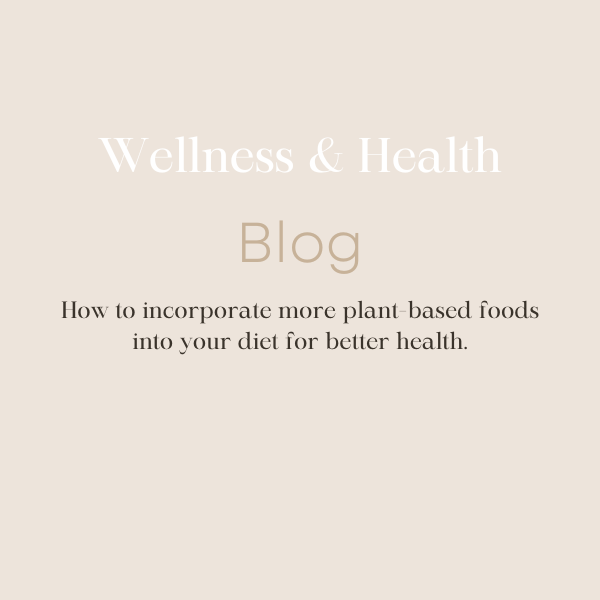Eating a plant-based diet has become increasingly popular in recent years, and for good reason. A diet that is rich in plant-based foods has been shown to reduce the risk of chronic diseases such as heart disease, diabetes, and certain types of cancer. But if you're used to a more traditional diet that includes meat and dairy, it can be challenging to know where to start.
In this blog post, we'll explore the benefits of plant-based eating, provide tips for incorporating more plant-based foods into your diet, and answer some common questions about this way of eating.
What is a plant-based diet?
A plant-based diet is one that focuses on whole, minimally processed foods that come from plants. This includes fruits, vegetables, whole grains, legumes, nuts, and seeds. A plant-based diet does not necessarily mean that you need to eliminate all animal products from your diet, but rather that the majority of your food comes from plant sources.
Benefits of a plant-based diet
Eating a plant-based diet has been shown to have numerous health benefits, including:
- Reduced risk of chronic diseases such as heart disease, diabetes, and certain types of cancer
- Improved digestion and gut health
- Lowered blood pressure and cholesterol levels
- Improved weight management
- Increased energy levels and improved mood
Tips for incorporating more plant-based foods into your diet
If you're looking to incorporate more plant-based foods into your diet, here are some tips to get you started:
- Start with small changes: Begin by adding one plant-based meal to your diet each day, such as a salad or vegetable stir-fry. Once you're comfortable with this, you can gradually increase the number of plant-based meals you eat each day.
- Experiment with new foods: Try new fruits, vegetables, and whole grains to keep your diet interesting and varied. There are many delicious plant-based recipes available online that you can try.
- Make simple swaps: Replace meat with beans or lentils in your favorite recipes, and use plant-based milk instead of dairy milk in your coffee or cereal.
- Plan ahead: Take time to plan your meals for the week, and make sure you have plenty of plant-based ingredients on hand.
- Find support: Connect with others who are also eating a plant-based diet for support and motivation.
Common questions about plant-based eating
- Can I get enough protein on a plant-based diet? Yes, there are plenty of plant-based sources of protein, such as beans, lentils, nuts, and seeds.
- Will I be missing out on important nutrients if I don't eat meat? No, as long as you eat a variety of whole plant-based foods, you can get all the nutrients you need.
- Is a plant-based diet more expensive? It can be, but there are many affordable plant-based foods such as beans, lentils, and whole grains.
Conclusion
Incorporating more plant-based foods into your diet can have numerous health benefits, but it doesn't have to be complicated or difficult. By making small changes and experimenting with new foods, you can enjoy a delicious and nutritious plant-based diet that supports your overall health and well-being. Start today by incorporating more fruits, vegetables, whole grains, legumes, nuts, and seeds into your meals, and see how you feel!





